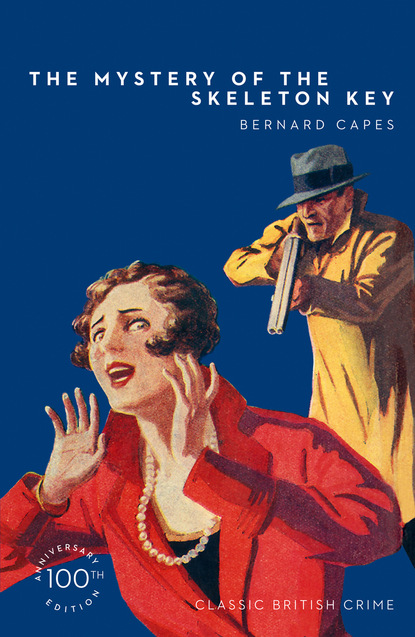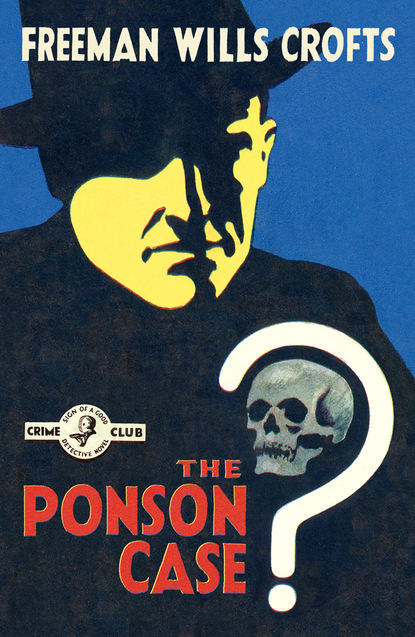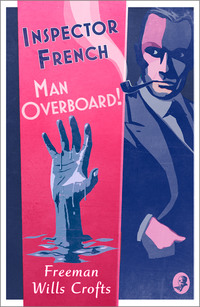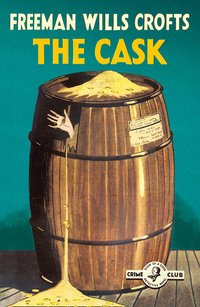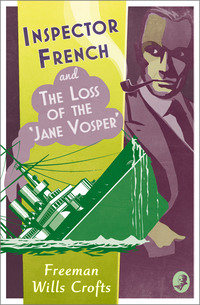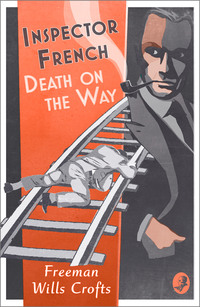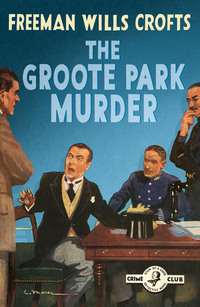
Полная версия
The Pit-Prop Syndicate
‘By Jove, what an extraordinary stroke of luck!’ Hilliard went on eagerly. ‘All three of them that know you out of the way! We can go down to the place now and ask for Mr Coburn, and maybe we shall have a chance to see inside of that shed. Let’s go at once, before they come back.’
They crawled away from their point of vantage into the wood, and retracing their steps to the boat, put it together and carried it to the river. Then rowing up-stream, they reached the end of the wharf, where a flight of wooden steps came down into the stream. Here they went ashore, after making the painter fast to the woodwork.
The front of the wharf, they had seen from the boat, was roughly though strongly made. At the actual edge, there was a row of almost vertical piles, pine trees driven unsquared. Behind these was a second row, inclined inwards. The feet of both rows seemed to be pretty much in the same line, but the tops of the raking row were about six feet behind the others, the arrangement, seen from the side, being like a V of which one leg is vertical. These tops were connected by beams, supporting a timber floor. Behind the raking piles rough tree stems had been laid on the top of each other horizontally to hold back the earth filled behind them. The front was about a hundred feet long, and was set some thirty feet out in the river.
Parallel to the front and about fifty feet behind it was the wall of the shed. It was pierced by four doors, all of which were closed, but out of each of which ran a line of narrow gauge railway. These lines were continued to the front of the wharf and there connected up by turn-tables to a cross line, evidently with the idea that a continuous service of loaded trucks could be sent out of one door, discharged, and returned as empties through another. Stacks of pit-props stood ready for loading between the lines.
‘Seems a sound arrangement,’ Hilliard commented as they made their inspection.
‘Quite. Anything I noticed before struck me as being efficient.’
When they had seen all that the wharf appeared to offer, they walked round the end of the shed. At the back were a number of doors, and through these also narrow gauge lines were laid which connected with those radiating to the edge of the clearing. Everywhere between the lines were stacks of pit-props as well as of blocks and cuttings. Three or four of the doors were open, and in front of one of them, talking to some one in the building, stood a man.
Presently he turned and saw them. Immediately they advanced and Hilliard accosted him.
‘Good-morning. We are looking for Mr Coburn. Is he about?’
‘No, monsieur,’ the man answered civilly, ‘he has gone into Bordeaux. He won’t be back until the afternoon.’
‘That’s unfortunate for us,’ Hilliard returned conversationally. ‘My friend and I were passing up the river on our launch, and we had hoped to have seen him. However, we shall get hold of him later. This is a fine works you have got here.’
The man smiled. He seemed a superior type to the others and was evidently a foreman.
‘Not so bad, monsieur. We have four saws, but only two are running today.’ He pointed to the door behind him as he spoke, and the two friends passed in as if to have an idle look round.
The interior was fitted up like that of any other sawmill, but the same element of design and efficiency seemed apparent here as elsewhere. The foreman explained the process. The lopped trunks from the wood came in by one of two roads through a large door in the centre of the building. Outside each road was a saw, its axle running parallel to the roads. The logs were caught in grabs, slung on to the table of the saws and, moving automatically all the time, were cut into lengths of from seven to ten feet. The pieces passed for props were dumped on to a conveyor which ran them out of the shed to be stacked for seasoning and export. The rejected pieces by means of another conveyor moved to the third and fourth saws, where they were cut into blocks for firewood, being finally delivered into two large bins ready for loading onto the lorries.
The friends exhibited sufficient non-technical interest to manage to spend a good deal of time over their survey, drawing out the foreman in conversation and seeing as much as they could. At one end of the shed was the boiler house and engine room, at the other the office, with between it and the mill proper a spacious garage in which, so they were told, the six lorries belonging to the syndicate were housed. Three machines were there, two lying up empty, the third, with engine running and loaded with blocks, being ready to start. They would have liked to examine the number plate, but in the presence of the foreman it was hardly possible. Finally they walked across the clearing to where felling and lopping was in progress, and inspected the operations. When they left shortly after with a promise to return to meet Mr Coburn, there was not much about the place that they had missed.
‘That business is just as right as rain,’ Merriman declared when they were once more in the boat. ‘And that foreman’s all right too. I’d stake my life he wasn’t hiding anything. He’s not clever enough for one thing.’
‘So I think too,’ Hilliard admitted. ‘And yet, what about the game with the number plates? What’s the idea of that?’
‘I don’t know. But all the same I’ll take my oath there’s nothing wrong about the timber trade. It’s no go, Hilliard. Let’s drop chasing wild geese and get along with our trip.’
‘I feel very like it,’ the other replied as he sucked moodily at his pipe. ‘We’ll watch for another day or so, and if we see nothing suspicious we can clear out.’
But that very evening an incident occurred which, though trifling, revived all their suspicions and threw them once again into a sea of doubt.
Believing that the Coburns would by that time have returned, they left the launch about five o’clock to call. Reaching the edge of the clearing almost directly behind the house, they passed round the latter and rang.
The door was opened by Miss Coburn herself. It happened that the sun was shining directly in her eyes, and she could not therefore see her visitors’ features.
‘You are the gentlemen who wished to see Mr Coburn, I presume?’ she said before Merriman could speak. ‘He is at the works. You will find him in his office.’
Merriman stepped forward, his cap off.
‘Don’t you remember me, Miss Coburn,’ he said earnestly. ‘I had the pleasure of meeting you in May, when you were so kind as to give me petrol to get me to Bordeaux.’
Miss Coburn looked at him more carefully, and her manner, which had up to then been polite, but coolly self-contained, suddenly changed. Her face grew dead white and she put her hand sharply to her side, as though to check the rapid beating of her heart. For a moment she seemed unable to speak, then, recovering herself with a visible effort, she answered in a voice that trembled in spite of herself:
‘Mr Merriman, isn’t it? Of course I remember. Won’t you come in. My father will be back directly.’
She was rapidly regaining self-control, and by the time Merriman had presented Hilliard her manner had become almost normal. She led the way to a comfortably furnished sitting-room looking out over the river.
‘Hilliard and I are on a motor launch tour across France,’ Merriman went on. ‘He worked from England down the coast to Bordeaux, where I joined him, and we hope eventually to cross the country to the Mediterranean and do the Riviera from the sea.’
‘How perfectly delightful,’ Miss Coburn replied. ‘I envy you.’
‘Yes, it’s very jolly doing these rivers and canals,’ Hilliard interposed. ‘I have spent two or three holidays that way now, and it has always been worth while.’
As they chatted on in the pleasant room the girl seemed completely to have recovered her composure, and yet Merriman could not but realise a constraint in her manner, and a look of anxiety in her clear brown eyes. That something was disturbing her there could be no doubt, and that something appeared to be not unconnected with himself. But, he reasoned, there was nothing connected with himself that could cause her anxiety, unless it really was that matter of the number plates. He became conscious of an almost overwhelming desire to share her trouble whatever it might be, to let her understand that so far from willingly causing a shadow to fall across her path there were few things he would not do to give her pleasure; indeed, he began to long to take her in his arms, to comfort her …
Presently a step in the hall announced Mr Coburn’s return.
‘In here, daddy,’ his daughter called and the steps approached the door.
Whether by accident or design it happened that Miss Coburn was seated directly opposite the door, while her two visitors were placed where they were screened by the door itself from the view of any one entering. Hilliard, his eyes on the girl’s face as her father came in, intercepted a glance of what seemed to be warning. His gaze swung round to the newcomer, and here again he noticed a start of surprise and anxiety as Mr Coburn recognised his visitor. But in this case it was so quickly over that had he not been watching intently he would have missed it. However, slight though it was, it undoubtedly seemed to confirm the other indications which pointed to the existence of some secret in the life of these two, a secret shared apparently by the good-looking driver and connected in some way with the lorry number plates.
Mr Coburn was very polite, suave and polished as an accomplished man of the world. But his manner was not really friendly, in fact, Hilliard seemed to sense a veiled hostility. A few deft questions put him in possession of the travellers’ ostensible plans, which he discussed with some interest.
‘But,’ he said to Hilliard, ‘I am afraid you are in error in coming up this River Lesque. The canal you want to get from here is the Midi, it enters the Mediterranean not far from Narbonne. But the connection from this side is from the Garonne. You should have gone up-stream to Langon, nearly forty miles above Bordeaux.’
‘We had hoped to go from still farther south,’ Hilliard answered. ‘We have penetrated a good many of the rivers, or rather I have, and we came up here to see the sand-dunes and forests of the Landes, which are new to me. A very desolate country, is it not?’
Mr Coburn agreed, continuing courteously:
‘I am glad at all events that your researches have brought you into our neighbourhood. We do not come across many visitors here, and it is pleasant occasionally to speak one’s own language to some one outside one’s household. If you will put up with pot-luck I am sure we should both be glad—’ he looked at his daughter ‘—if you would wait and take some dinner with us now. Tomorrow you could explore the woods, which are really worth seeing though monotonous, and if you are at all interested I should like to show you our little works. But I warn you the affair is my hobby, as well as my business for the time being, and I am apt to assume others have as great an interest in it as myself. You must not let me bore you.’
Hilliard, suspicious and critically observant, wondered if he had not interrupted a second rapid look between father and daughter. He could not be sure, but at all events the girl hastened to second her father’s invitation.
‘I hope you will wait for dinner,’ she said. ‘As he says, we see so few people, and particularly so few English, that it would be doing us a kindness. I’m afraid that’s not very complimentary—’ she laughed brightly—‘but it’s at least true.’
They stayed, and enjoyed themselves. Mr Coburn proved himself an entertaining host, and his conversation, though satirical, was worth listening to. He and Hilliard talked, while Merriman, who was something of a musician, tried over songs with Miss Coburn. Had it not been for an uneasy feeling that they were to some extent playing the part of spies, the evening would have been a delight to the visitors.
Before they left for the launch it was arranged that they should stay over the following day, lunch with the Coburns, and go for a tramp through the forest in the afternoon. They took their leave with cordial expressions of good will.
‘I say, Merriman,’ Hilliard said eagerly as they strolled back through the wood, ‘did you notice how your sudden appearance upset them both? There can be no further doubt about it, there’s something. What it may be I don’t know, but there is something.’
‘There’s nothing wrong at all events,’ Merriman asserted doggedly.
‘Not wrong in the sense you mean, no,’ Hilliard agreed quickly, ‘but wrong for all that. Now that I have met Miss Coburn I can see that your estimate of her was correct. But any one with half an eye could see also that she is frightened and upset about something. There’s something wrong, and she wants a helping hand,’
‘Damn you, Hilliard, how you talk,’ Merriman growled with a sudden wave of unreasoning rage. ‘There’s nothing wrong and no need for our meddling. Let us clear out and go on with our trip.’
Hilliard smiled under cover of darkness.
‘And miss our lunch and excursion with the Coburns tomorrow?’ he asked maliciously.
‘You know well enough what I mean,’ Merriman answered irritably. ‘Let’s drop this childish tomfoolery about plots and mysteries and try to get reasonably sane again. Here,’ he went on fiercely as the other demurred, ‘I’ll tell you what I’ll do if you like. I’ll have no more suspicions or spying, but I’ll ask—her—if there is anything wrong: say I thought there was from her manner and ask her the direct question. Will that please you?’
‘And get well snubbed for your pains?’ Hilliard returned. ‘You’ve tried that once already. Why did you not persist in your inquiries about the number plate when she told you about that driver’s shell-shock?’
Merriman was silent for a few moments, then burst out:
‘Well, hang it all, man, what do you suggest?’
During the evening an idea had occurred to Hilliard and he returned to it now.
‘I’ll tell you,’ he answered slowly, and instinctively he lowered his voice. ‘I’ll tell you what we must do. We must see their steamer loaded. I’ve been thinking it over. We must see what, if anything, goes on board that boat beside pit-props.’
Merriman only grunted in reply, but Hilliard, realising his condition, was satisfied.
And Merriman, lying awake that night on the port locker of the Swallow, began himself to realise his condition, and to understand that his whole future life and happiness lay between the dainty hands of Madeleine Coburn.
Конец ознакомительного фрагмента.
Текст предоставлен ООО «ЛитРес».
Прочитайте эту книгу целиком, купив полную легальную версию на ЛитРес.
Безопасно оплатить книгу можно банковской картой Visa, MasterCard, Maestro, со счета мобильного телефона, с платежного терминала, в салоне МТС или Связной, через PayPal, WebMoney, Яндекс.Деньги, QIWI Кошелек, бонусными картами или другим удобным Вам способом.





